
A student-tested Program to sound fluent, not robotic

Intonation & Rhythm
Start using the right tone, stress, and pace to sound more authentic in Spanish—and truly understand what others are saying
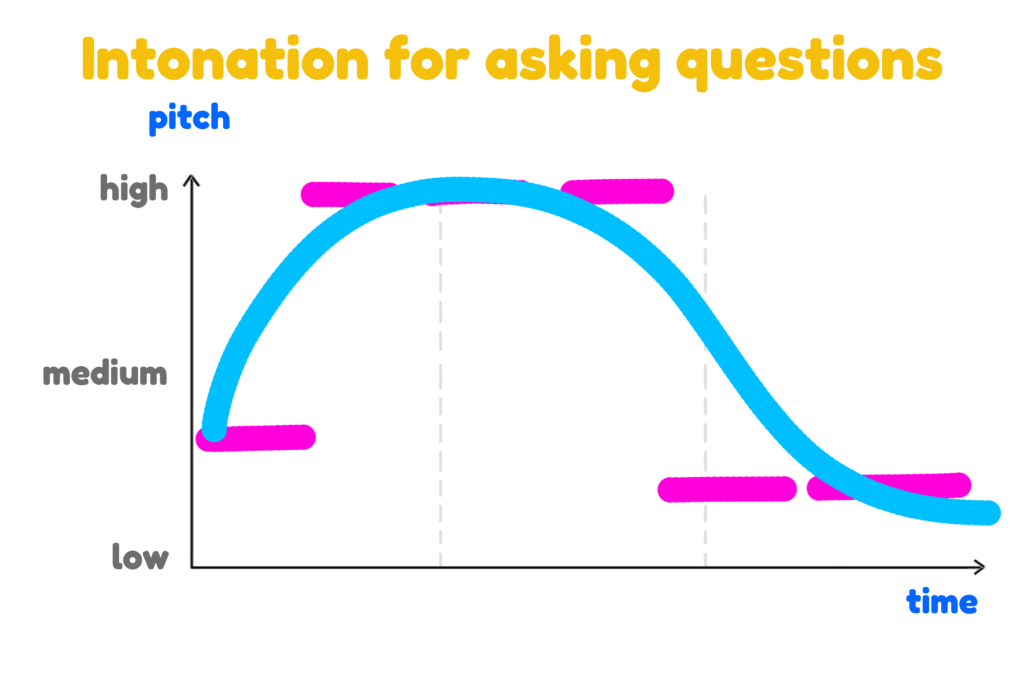
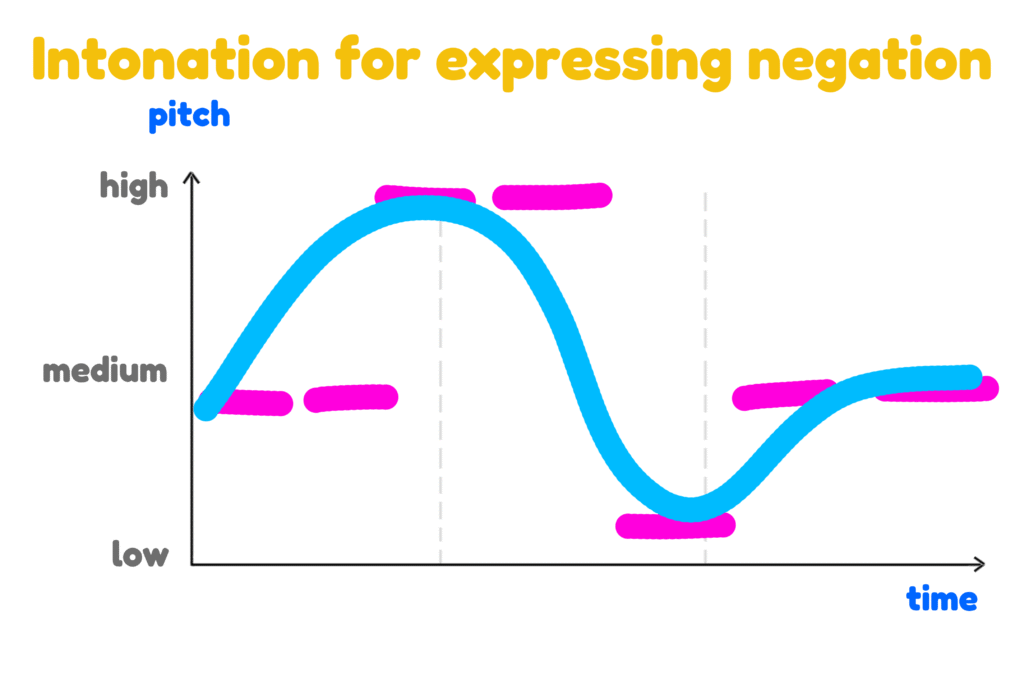
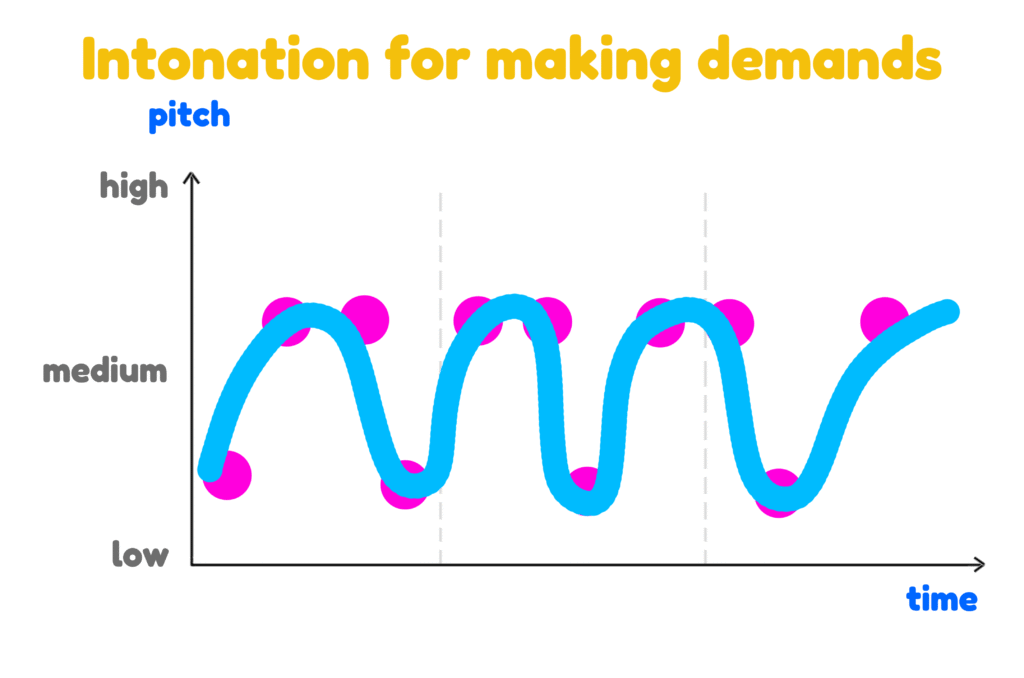
🗝️ The Missing Piece: The Right Syntax
The key to unlocking natural, native-sounding Spanish lies in the correct and intuitive use of the grammatical structure. This is why I have created: ⬇️

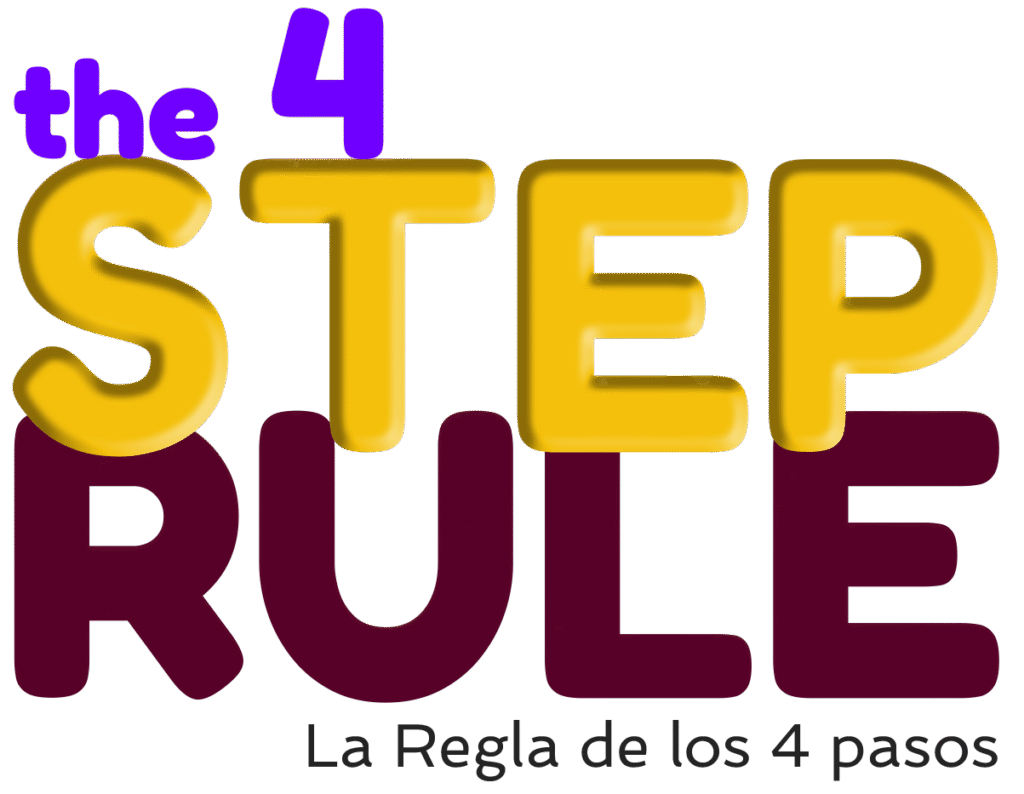
I understand why you struggle. The 4-Step Rule breaks down the concepts in a way that makes sense to a non-Spanish-speaking mind, highlighting the key differences and common pitfalls.
Inside the program:
The Sound Like a Native syllabus
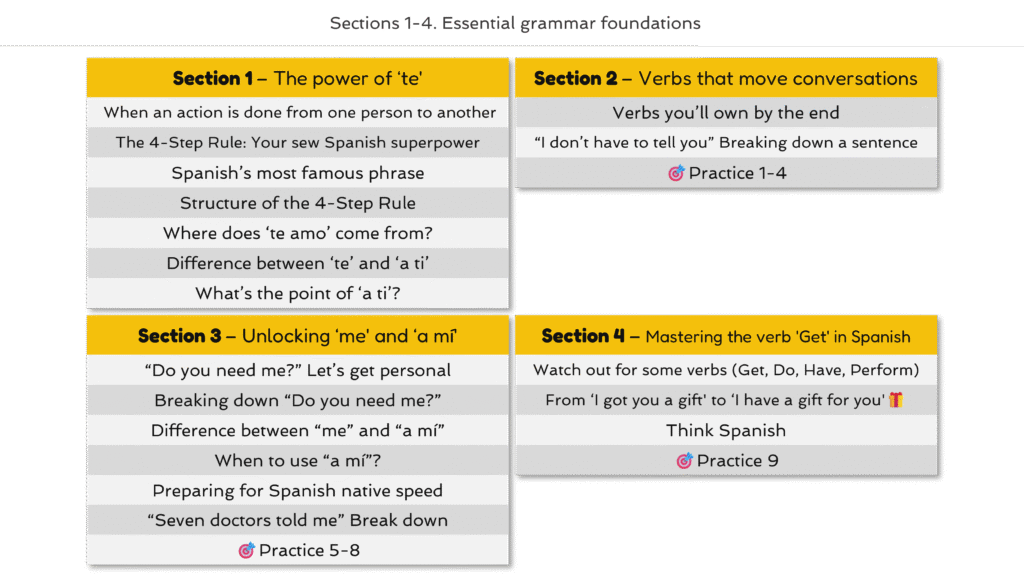
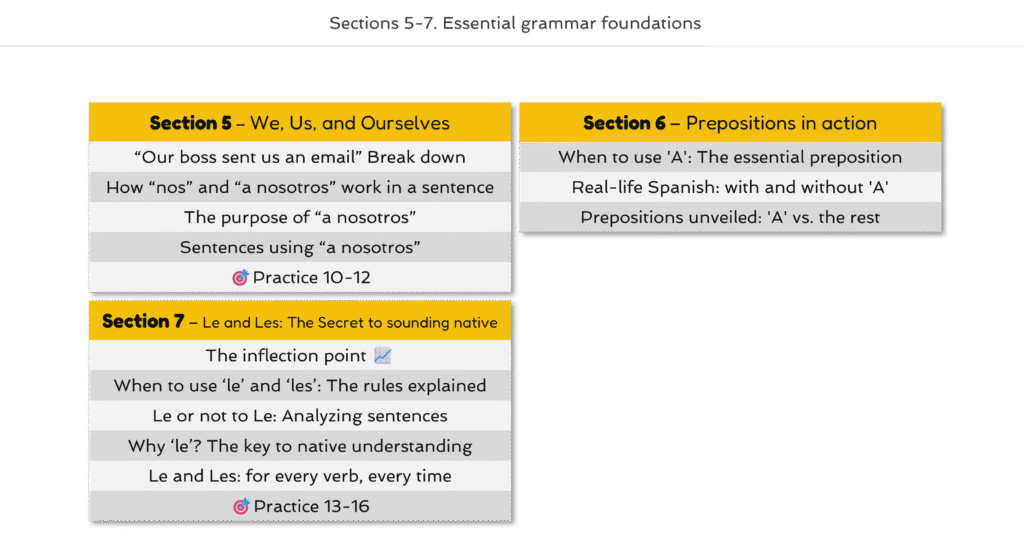
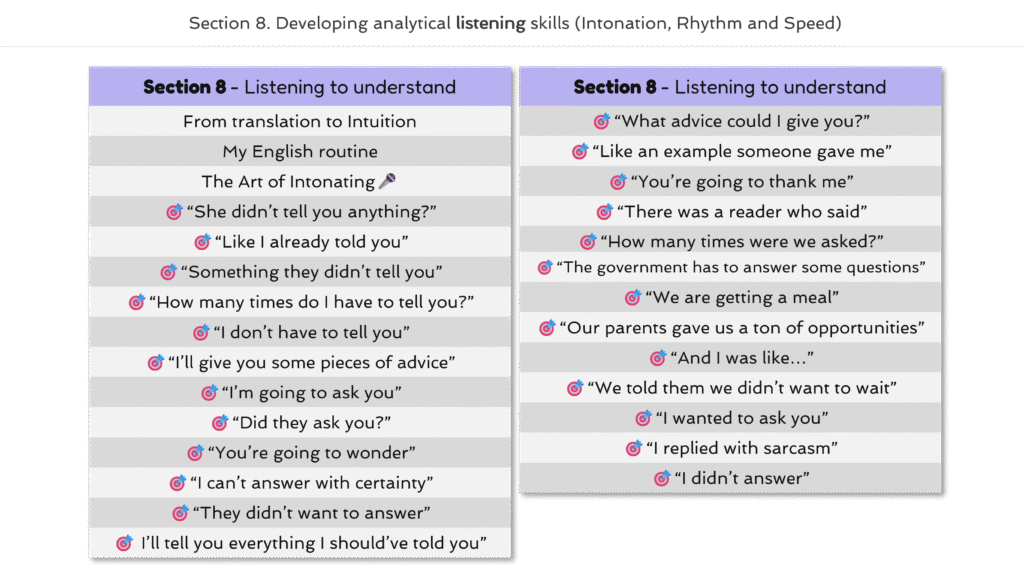
What you’ll gain from this program
1️⃣ Clearly understand when to use each of the different indirect pronouns (me, te, nos, le, and les)
Students will be able to form grammatically correct and natural sentences, improving clarity and comprehension in both speaking and listening. It prevents common errors that can lead to misunderstandings in conversations.
2️⃣ Clearly understand when to use each of the different indirect pronouns (me, te, nos, le, and les)
Students will be able to form grammatically correct and natural sentences, improving clarity and comprehension in both speaking and listening. It prevents common errors that can lead to misunderstandings in conversations.
3️⃣ Master the use of the 4 most used verbs in Spanish: Decir, Preguntar, Responder, and Dar, in spoken and listening ways
These verbs are essential for daily communication. Mastery of them improves fluency in conversations, especially for asking and answering questions, giving, and receiving information.
4️⃣ Better understand and use the verbs Get, Have, Do, and Perform in Spanish
These English verbs often don’t translate directly, so students will avoid common translation pitfalls and will know accurate, context-appropriate equivalents, enhancing both writing and speech.
5️⃣ Being able to understand the tricky use of the preposition “a”
Students will avoid common misunderstandings and grammatical mistakes with one of Spanish’s most nuanced prepositions, leading to more natural and accurate speech.
6️⃣ Being able to understand when to use other prepositions
7️⃣ Listen and internalize regular daily phrases used by native speakers in different accents and speeds
Students will become better at understanding real-world spoken Spanish, even in fast or regional variations, increasing their listening comprehension and cultural adaptability.
8️⃣ Replicate and speak out loud important phrases in the exact tone and syntax Spanish speakers understand
Improves pronunciation, rhythm, and natural expression, helping students sound more fluent and native-like, making communication smoother and more effective.
9️⃣ Interiorize the tools to convert any thought into a spoken sentence in Spanish, using correct syntax and tone
Students will think directly in Spanish, accelerating fluency and reducing hesitation when speaking, since they no longer need to mentally translate from their native language.
1️⃣0️⃣ Overcome the need to translate thoughts and adopt a key thinking pattern Spanish speakers use (the 4-step rule)
This leads to faster, more intuitive speaking ability, reducing the cognitive load and allowing students to speak spontaneously and naturally.
1️⃣1️⃣ Gain the best methodology for improving your accent even after the course ends
Students will leave with a sustainable, long-term learning strategy, enabling continuous accent improvement and pronunciation refinement, which is critical for being understood and accepted as a fluent speaker.
Sound Like a Native is designed specifically for Spanish students like you, this program cuts through the confusion and gives you the practical tools and extensive practice you need to master your Spanish speaking and listening skills.


Ready to finally speak Spanish with confidence and clarity—with my expert guidance?

Get the Launch price!
$99.00
$69.99
(You’ll be taken to our secure checkout page)

About 65% of your Spanish sounds a bit robotic 🤖
Spanish without pronouns just isn’t really Spanish.
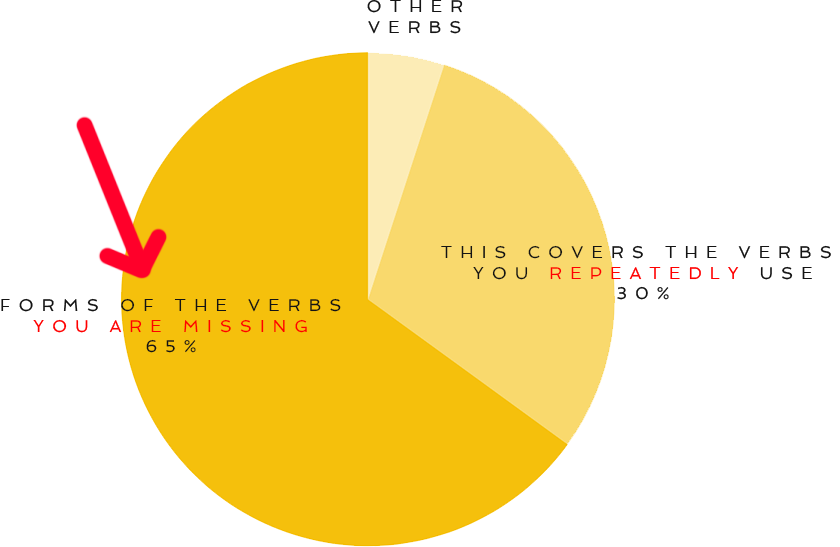
✅ I’ll help you fill in that missing 65% of the picture so that:
1. Your Spanish sounds much more natural and pleasant to native speakers, and
2. You can better understand what your Spanish-speaking friends are actually saying.
Here’s what you usually say:
🥱“Quiero comprar un regalo para mi novio.”
Here’s what native speakers are expecting to hear:
🤩“Le quiero comprar un regalo a mi novio.”
And with practice, you’ll be able to say it naturally—without having to stop and think.
Join Our Supportive Learner Community!
Your learning journey doesn’t happen in isolation. With this course, you get exclusive access to my private student community group.
- Ask any questions you have about the material or Spanish in general.
- Share your progress and insights with fellow learners.
- Get direct feedback and answers from me, your instructor.
- Practice and engage in a supportive environment.
We’re all in this together, committed to helping each other succeed!

Your Path to Natural Spanish Starts Here!
Stop feeling stuck. Start speaking naturally, with the ease and fluency you’ve been aiming for. This course is your direct path to mastering intonation, rhythm, and native-like expression.

Get the Launch price!
$99.00
$69.99
(You’ll be taken to our secure checkout page)
Get your free
100 phrases you’re saying wrong
100 days to get them right eBook!
What is this eBook about?
- 100 of the most common and useful Spanish phrases for everyday conversations and more.
- Here you’ll start getting used to the pronouns like me, te, se, nos, le, les, lo, los, la, and las in real, practical sentences.
- You’ll learn about the common mistakes non-Spanish speakers make when translating from English to Spanish.
- Choose one phrase per day and start building a microlearning habit with this bite-sized eBook.
- Take a quick look at the eBook in the pictures below!⬇️
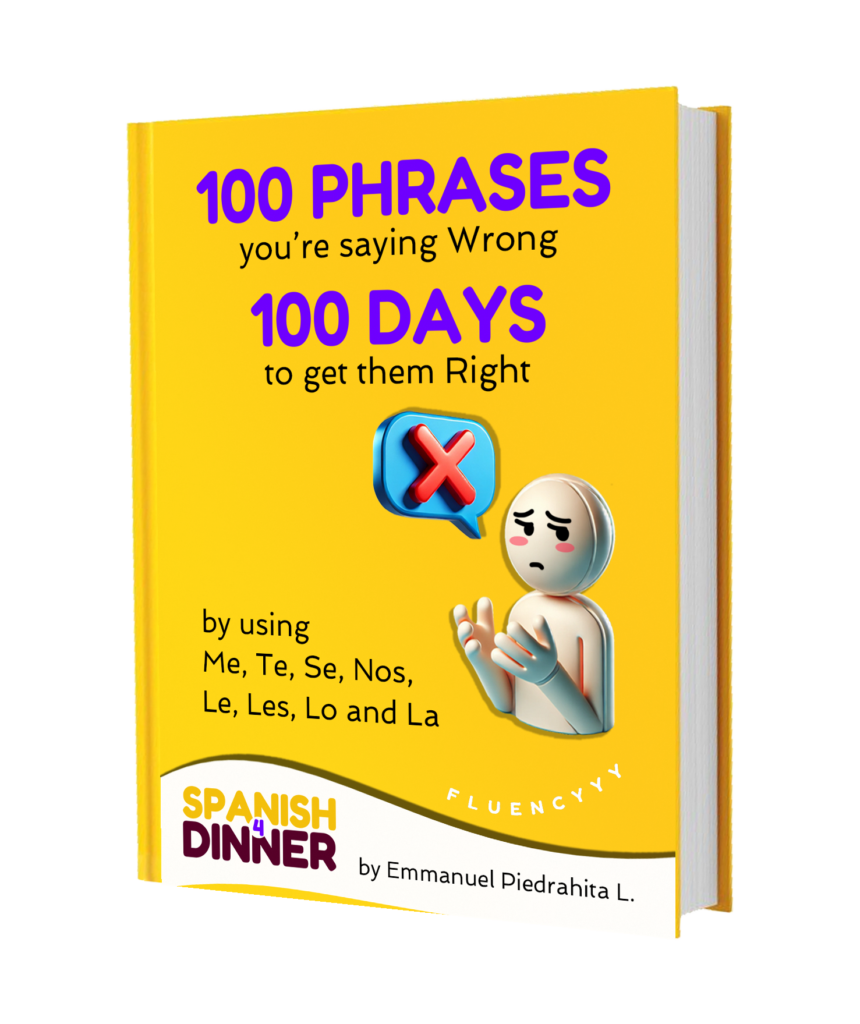
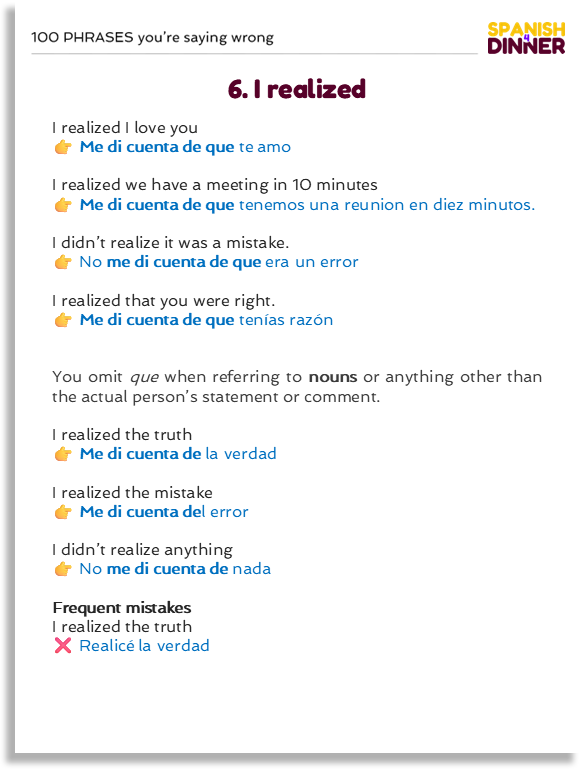
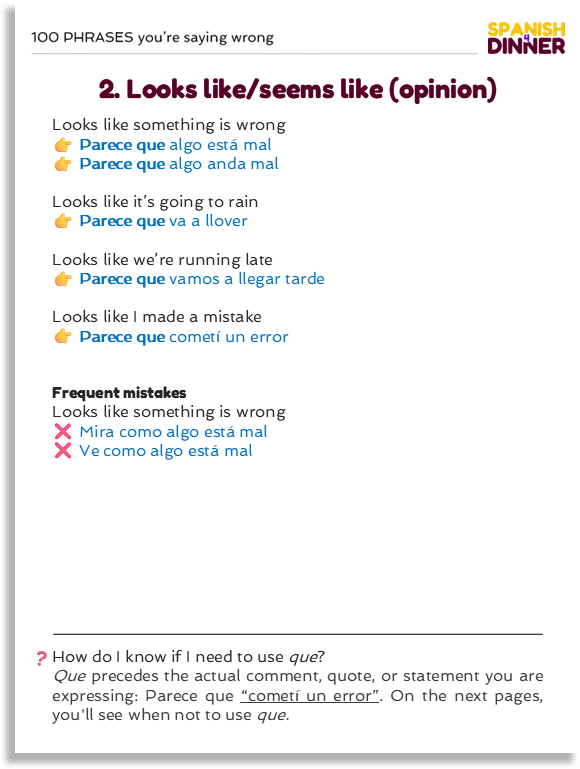
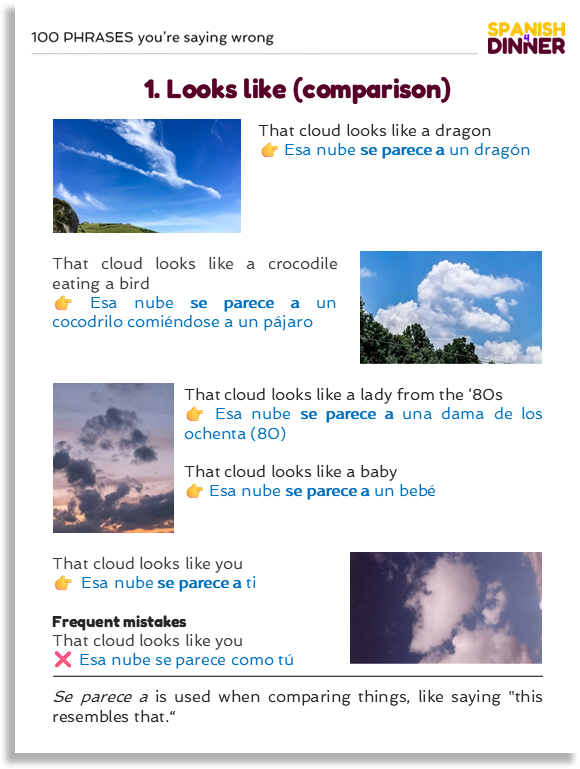
You can get this eBook for free in PDF format. Just fill out the form below to receive it
